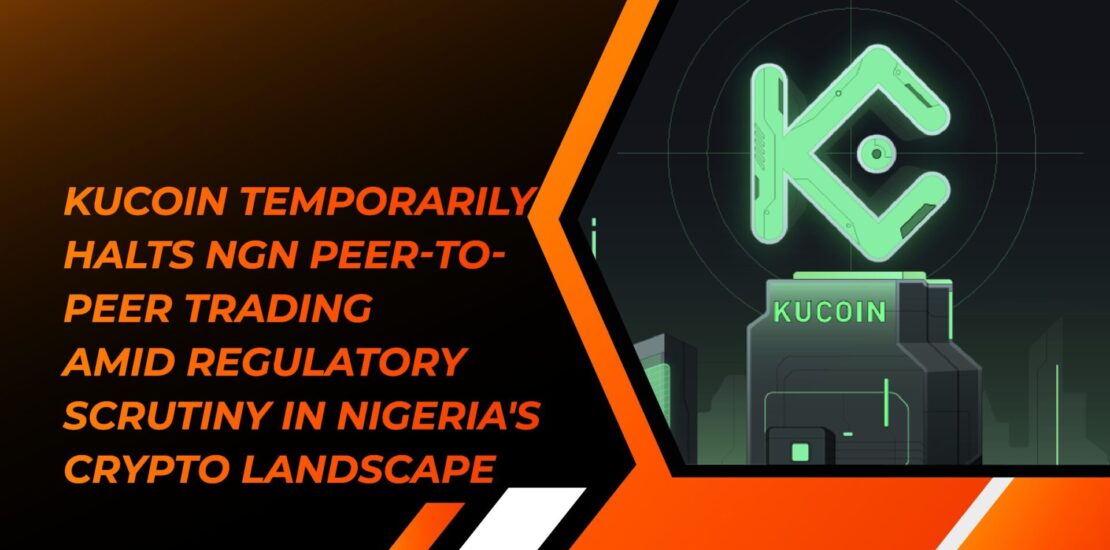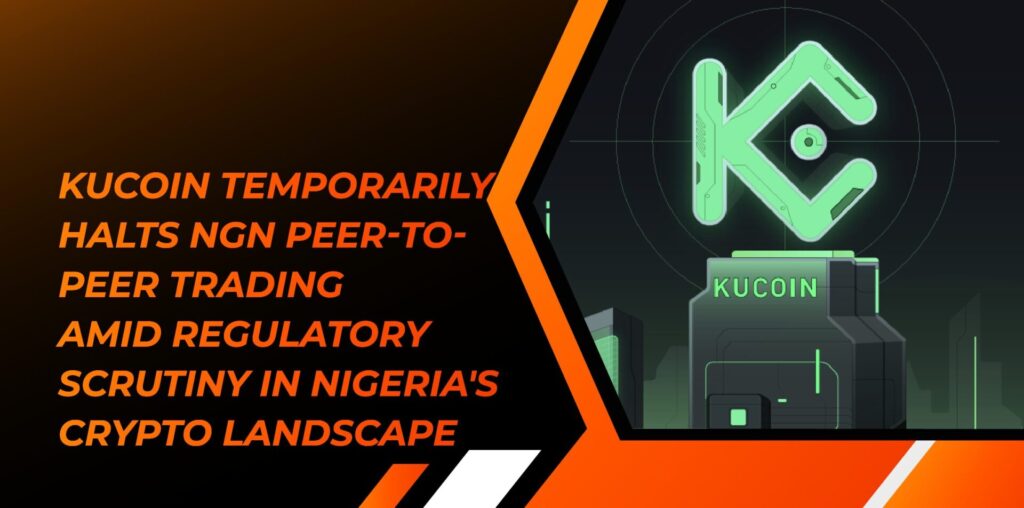- May 16, 2024
- Posted by: [email protected]
- Category:


In response to escalating regulatory pressures from Nigerian authorities, KuCoin has made the strategic decision to temporarily halt all peer-to-peer (P2P) trading activities involving the Nigerian naira. This development underscores the evolving regulatory environment within Nigeria’s cryptocurrency sphere and reflects the broader challenges faced by digital asset exchanges operating in the country.
The decision to suspend naira-based P2P trading comes on the heels of directives issued by Nigeria’s Securities and Exchange Commission (SEC), signaling a concerted effort to tighten oversight on crypto-related activities. The SEC’s recent engagement with industry stakeholders, including KuCoin, emphasized the need for compliance with regulatory frameworks, prompting KuCoin’s proactive response to ensure alignment with evolving legal requirements.
On Wednesday, KuCoin made a public notice via a blog post that it was temporarily suspending P2P naira services as well as the Fast Buy service enabled by Naira cards. This move is part of KuCoin’s ongoing commitment to enhancing its service offerings while navigating the complexities of regulatory compliance in the Nigerian market.
The decision to suspend P2P trading activities can be interpreted as a preemptive measure by KuCoin to mitigate potential regulatory risks and maintain regulatory compliance standards. With the recent legal challenges encountered by other prominent exchanges, such as Binance, KuCoin’s strategic pause underscores the importance of proactive regulatory engagement and risk management within the cryptocurrency industry.
Nigeria’s regulatory landscape has witnessed a significant intensification of scrutiny directed towards P2P cryptocurrency trading, driven by concerns over financial stability and investor protection. Regulatory bodies, including the Office of the National Security Adviser and the Economic and Financial Crimes Commission (EFCC), have issued directives to financial institutions and fintechs to monitor and report accounts associated with crypto trading activities.
During a recent meeting, SEC Director-General Emomotimi Agama attributed the naira’s drop to peer-to-peer cryptocurrency trading, underscoring regulatory concerns about its impact on currency stability. Despite regulatory interventions, the naira continues to face challenges, with recent fluctuations in its value against major fiat currencies, including a notable decline against the US dollar in the parallel foreign exchange market.
Allegations and counterclaims between industry stakeholders and government officials are also part of the evolving regulatory dynamics in Nigeria’s cryptocurrency landscape. Binance CEO Richard Teng’s accusations of attempted coercion and bribery by Nigerian officials underscore the high-stakes nature of regulatory compliance and the potential ramifications for international exchanges operating within the country.
As KuCoin navigates the regulatory landscape in Nigeria and beyond, the exchange’s proactive approach to compliance underscores the importance of adaptability and responsiveness to regulatory developments. By prioritizing regulatory compliance and risk management, KuCoin aims to maintain trust and transparency while fostering a compliant and sustainable operating environment within Nigeria’s evolving crypto ecosystem.



